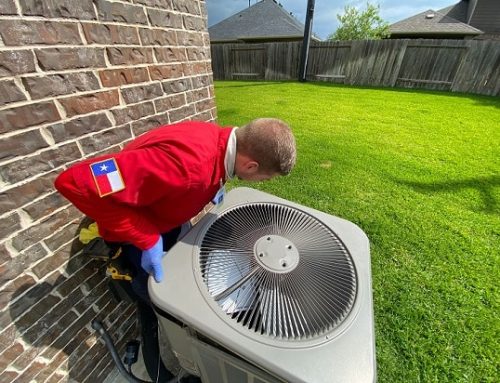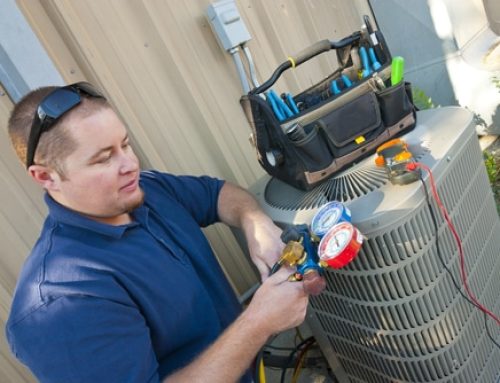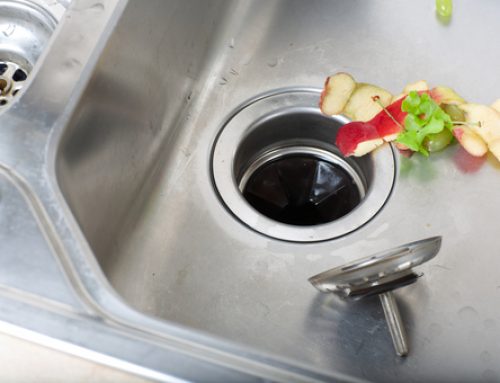A common issue with central air conditioners occurs when they are working too long and hard, and as a result, overheat.
Eventually, overheating of an A/C either will cause an internal breakdown or will trip the circuit breaker. That’s why it’s important to understand why a central A/C will become overworked and overheated.
While you can change a dirty air filter, with dirty coils and low refrigerant your best bet is calling a professional HVAC technician to address these issues. Cleaning the coils and checking and charging the refrigerant are both components of a standard A/C maintenance visit.
There are three main reasons why your HVAC system is overheating:
1) A clogged air filter. When air is circulating in a forced-air cooling or heating system, an essential stage in the process is filtration. The air filter, usually located where the ductwork connects with the furnace or A/C air handler, removes particulates from the air, allowing for more efficient operation. When the filter is clogged with dust and debris, your A/C components have to work harder to push air across the evaporator coil, through your home’s ductwork and registers. Eventually, this will cause the system to overheat and break down. Inspect the air filter monthly and change it when it appears dirty.

2) Dirty coils. Refrigerant-filled coils are key components in the cooling process. The inside (evaporator) coil absorbs heat energy from the air, creating interior cooling, while the outside (condenser) coil releases that heat energy into the outside air. If either coil is coated in grime, the vital heat-exchange process will be restricted. As with a dirty air filter, this will force your A/C components, including the air handler motor and compressor, to work harder and longer. Eventually, it will break down or trip the circuit breaker.
3) Low refrigerant. As with the other two issues, a low refrigerant charge can force the A/C to work harder than it’s designed to operate, once again resulting in overheating and a possible breakdown.
To schedule HVAC service or maintenance in your The Woodlands area home, please contact us today at Bradbury Brothers Heating & Air Conditioning.
There’s no question that the Texas heat can force your AC unit to work double time. Here are three common causes of AC system overheating and what you can do to troubleshoot:
- Dirty filters. Clogged filters cause your AC to work harder, which can lead to overheating. Replace the filters to see if it stops the problem.
- Clogged condensers. You can check the outside condenser coils to see if they are clogged with debris like vegetative growth or leaves. If removing exterior debris doesn’t work, it’s usually best to call a professional to clean the coils and check the inside evaporator coils as well.
- Low refrigerant. Call a professional to check refrigerant levels and inspect for leaks.
To schedule a maintenance visit to fix these issues, call the pros at Bradbury Brothers today!Your Content Goes Here
Several issues can cause your air conditioner to smell like it’s burning, from minor problems to more critical situations. Here are some of the things that might be causing the smell:
- Worn-out motor. A malfunctioning motor may need to be replaced.
- Overheating motor. Clogged air filters can cause the motor to work harder and may produce a burning smell.
- Bad capacitor. This component that helps start the AC run cycle can go bad and produce a burning smell.
- Electrical problems. Modern AC units have many electrical parts. A short or malfunction can cause wires or components to overheat and emit a smell like burning plastic.
If the smell lasts for more than a few minutes and changing the air filters doesn’t work, you should immediately shut the system down and contact an HVAC technician. Contact our experts at Bradbury Brothers for more information.
When an AC compressor overheats, you won’t be able to cool your home correctly, and it’s usually the sign of another system problem.
The compressor is a vital piece of an AC unit that circulates the refrigerant through all of the system’s components. As a result, an overheating compressor often indicates a fault in other parts of the overall system.
These can include:
- Kinked, clogged or broken lines or tubes in the system.
- Malfunctioning evaporator coil.
- Dirty condenser coils.
- Broken fans.
- Low refrigerant levels.
An overheating compressor is among the most common issues that can affect an air conditioning system and must be diagnosed by an HVAC professional. To schedule a visit with a Bradbury Brothers technician, contact our team today!




